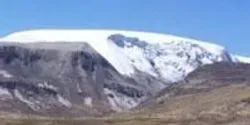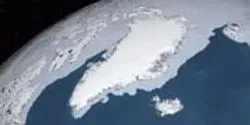climate change

A recent study involving Kansas State University researchers finds that in the coming decades at least one-quarter of the world's wheat production will be lost to extreme weather from climate change if no adaptive measures are taken.

As the Earth warms and glaciers all over the world begin to melt, researchers and public policy experts have focused largely on how all of that extra water will contribute to sea level rise.

For every degree Celsius that the temperature increases, the world loses 6 percent of its wheat crop, according to a new global study led by a University of Florida (UF) scientist. That’s one fourth of the annual global wheat trade, which reached 147 million tons in 2013.

On their most recent trip to study seeps, Indiana State University scientists made a big discovery regarding a tiny creature that lives in both seep and non-seep habitats.

In 2014, Lawrence Livermore National Laboratory (LLNL) built on a 62-year tradition of translating basic science into technologies that ensure national security, address pressing real world problems and expand the boundaries of fundamental science.













